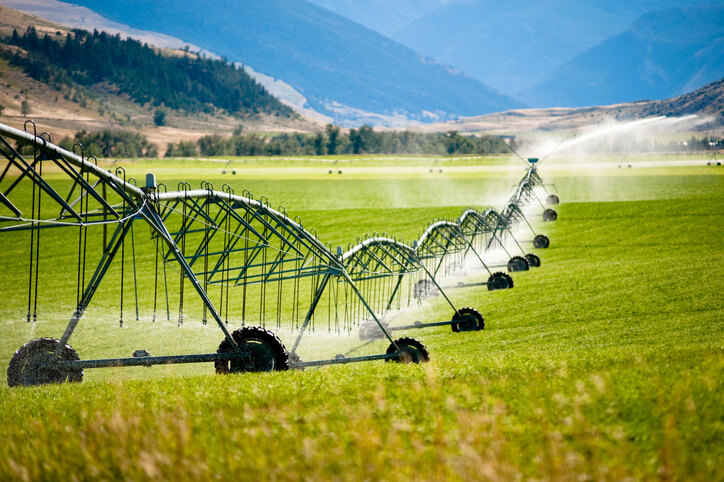
Irrigation systems are critical to modern agriculture, enabling farmers to grow crops in areas where water is scarce. These systems are designed to deliver water to crops in a controlled manner, optimizing growth and yields while conserving water. In this blog post, we’ll discuss the different types of irrigation systems and their benefits.
- Drip Irrigation: This system delivers water directly to the base of each plant, reducing water waste and minimizing weed growth.
- Sprinkler Irrigation: This system uses overhead sprinklers to distribute water over large areas of farmland, making it an effective option for larger farms.
- Center Pivot Irrigation: This system involves a series of sprinklers mounted on a circular boom, which rotates around a central pivot point, providing even water distribution.
- Flood Irrigation: This system involves flooding the fields with water, making it an affordable option for small-scale farmers. However, it can lead to waterlogging and soil erosion.
Benefits of Irrigation Systems
- Improved Crop Yields: By providing crops with the right amount of water, irrigation systems can significantly increase yields.
- Water Conservation: Irrigation systems can help conserve water by delivering water directly to the roots of plants, reducing runoff and evaporation.
- Precision Application: By using sensors and timers, irrigation systems can provide the right amount of water at the right time, reducing waste and ensuring optimal growth.
- Reduced Labor Costs: Automated irrigation systems can save farmers time and money by eliminating the need for manual watering.
Challenges of Irrigation Systems
- Cost: Irrigation systems can be expensive to install and maintain, particularly for small-scale farmers.
- Energy Consumption: Some irrigation systems require significant energy to operate, adding to the cost and environmental impact.
- Maintenance: Regular maintenance is essential to keep irrigation systems functioning correctly and prevent leaks or other issues.
- Environmental Impact: Overuse of water in irrigation systems can lead to waterlogging, salinization, and other environmental problems.
Conclusion
Irrigation systems are an essential component of modern agriculture, enabling farmers to grow crops in areas with limited water resources. While there are challenges to implementing irrigation systems, the benefits of improved crop yields, water conservation, and precision application make it an investment worth considering for farmers.









